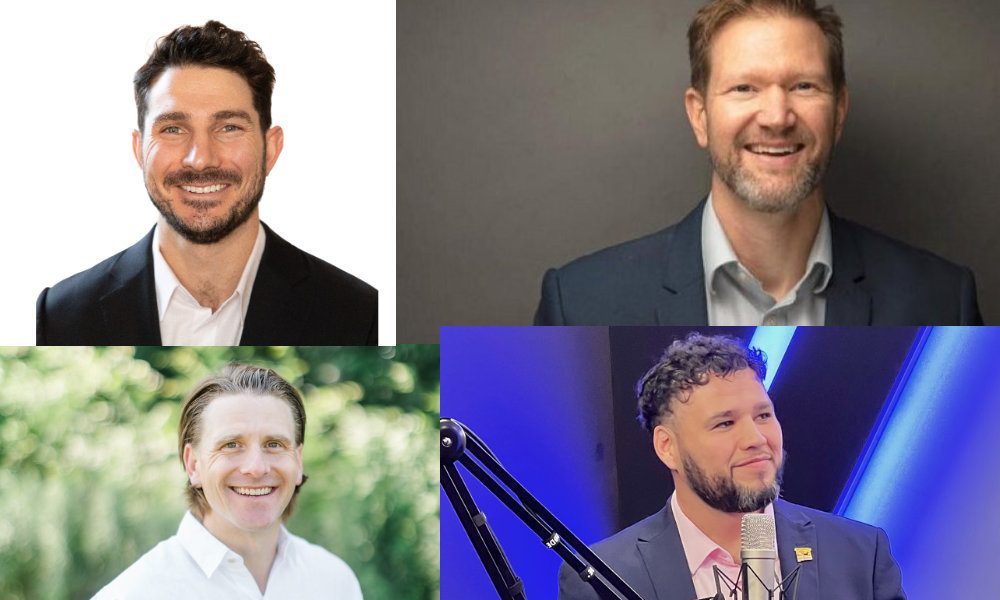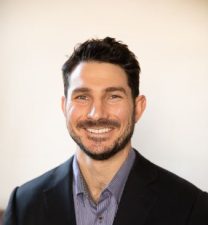Daniel Kustelski’s experiences as a U.S. Military Academy cadet influence him to this day. He remains disciplined and orderly and is attentive to details, comparing his training to “a muscle I’ve been exercising since I was in the military.”
Another lesson lingers from the years Kustelski spent at West Point and various army bases and during a deployment in Bosnia: Getting up early to prepare for each day. During the recent Global Gaming Expo in Las Vegas, Kustelski and his brother, also a veteran, arose at 6:30 a.m. to run, “regardless of how late the night was prior.”
“So I start my day a little earlier and usually beat the crowd,” Kustelski says. “That level of discipline is still part of my life. That drive, certainly as an entrepreneur, is difficult. There are a lot of very difficult days, lots of challenges, lots of not necessarily knowing what the right path is. But I just need to persevere and a lot of that comes from my military experience.”
Kustelski is one of a number of veterans working in the gaming industry with a work ethic honed through duty.
“Veterans are uniquely prepared to lead in the business world and their wide-ranging skills and experiences make them great candidates for an array of roles within our industry,” says American Gaming Association President and CEO Bill Miller. “From the C-suite to the casino floor, veterans are making gaming stronger.”
Veteran’s Day is November 11.
The first thing Bryan Price does every day is make his bed.
No matter how early it is, no matter how tired or pressed for time, Price’s bed gets made. Not haphazardly, but to specifications he learned as a cadet as the U.S. Air Force Academy: covers folded down eight inches, with that fold down being exactly 16 inches from the top.
“That attention to detail was ingrained in me,” says Price, co-CEO and founder of iProtekt, a company that provides industry-compliant responsible gaming safeguards and services.
After graduating from the U.S. Air Force Academy, Price earned a Master of Science degree in cost analysis from the U.S. Air Force Institute of Technology. While stationed in Ohio, Price served as an honor guard for military funerals, then served at Los Angeles Air Force Base, home to Space Base Delta 3 and the Field Command, Space Systems Command. He then was deployed to Bahrain.
After leaving the Air Force, Price co-founded a fantasy sports site with business partner Michael Borukhov. But that venture didn’t meet the level of service he sought as a civilian.
“During my time in service, I came to understand people better,” Price says. “I came to understand that my purpose here is not to serve myself, but it really is to serve others.”
Thus was born iProtekt. While a for-profit business, the company’s impetus stems from Price’s realizing that several friends, some still in the military, were dealing with gambling and alcohol issues.
“We thought there was a need for a responsible-gaming tool and we can make that,” Price says. “We were able to analyze the data of problematic gamblers and we thought, gosh, we can identify points at which is person is going what we call ‘full tilt.’ From that, we said if we could provide this to an operator or a state to see, they can provide a tool to a person who may be going down a wrong path.”
The biggest lesson Joe Solosky learned from his time at the U.S. Naval Academy is integrity.
Currently the managing director of sports betting for NASCAR, he recalls how being true to the lessons he learned during his time at the Academy helped him at subsequent jobs, including when he worked for the FBI’s information-technology division.
“I was put in a lot of weird situations overseas that I felt very uncomfortable with,” Solosky says. “But I had principles and a lot of that was based on the integrity and character building that we were taught at the Naval Academy. And I think that helped me in terms of being a consistent person and not doing the wrong thing in places where it would have been really easy to do the wrong thing.”
The idea of doing what’s right is important to Solosky. But he also draws from lessons learned at the Naval Academy (and the FBI) about diagnosing and solving problems to educate co-workers about emerging trends and issues related to sports betting.
“My time at NASCAR has been very much about problem solving,” Solosky says, “but also understanding what the problem is. They hired me for a reason and I don’t think they knew if there was a problem or there was an opportunity. I want to make this business as big as possible for NASCAR, not just from a revenue side, but from a perspective of how we grow the sport.”
CDC Gaming Show host Casey Gonzales, a gaming industry consultant and entrepreneur, spent one semester in college before deciding it wasn’t for him. Two weeks after talking to a recruiter, Gonzales was sent to the U.S. Navy’s Great Lakes Training Center. He eventually became a rescue swimmer on the USS Donald Cook and later served in the same role on the USS Iwo Jima.
After leaving the Navy, Gonzales garnered an internship with the Gaming Capitol Group in Oklahoma. Throughout his time in the gaming industry, he’s relied on the attention to detail that was part of his daily routine in the Navy.
“When you’re dealing with lifesaving equipment, you have to make sure the equipment is not expired and is ready, in order,” Gonzales says. “Attention to detail is probably the trait that has helped me succeed in the casino industry. … It starts in boot camp, where you have to put your shirts in a certain order and your swim gear in a certain order.”
“Also, the just the structure of waking up early,” Gonzales adds. “I think the best advice I ever heard was you should see a sunrise every day. The military taught me that and I’ve carried that with me through each day.”
Perhaps the most important skill veterans develop while in the military is how to deal with stress, how to pivot because of unexpected occurrences. In the gaming industry, Kustelski has experienced situations that, while not as serious as being deployed in a foreign country, nevertheless can wreck plans that aren’t fully formed.
“It’s really about your own perspective and changing your perspective on things that happen,” Kustelski says. “And some people just can’t handle that as well – the world is going to end today or tomorrow or in the next five minutes. And just being in the military, so many crazy things happen to you that you have to manage internally. All the things that are going to happen to you will happen to you regardless.
“What I probably learned best in my freshman year at West Point, or going through basic courses, is that you’re purposely put in stressful situations so you can handle them later in life.”
Price says that being able to accept change, to make decisions on the fly due to varying conditions, has stood him well in the gaming industry.
“I learned through my experiences in the military to be adaptable, and don’t resist it, and that has absolutely helped us (at iProtekt),” Price says. “We’ve become adaptable to finding a better way. We thought we were just going to help the individual. But being adaptable, we can help the operator with their player retention. We can also help an entire state, so they get a better understanding of certain demographics. It all kind of syncs together, to provide resolutions in the industry where a problem will continue to grow unless a proactive approach is taken to it.”







